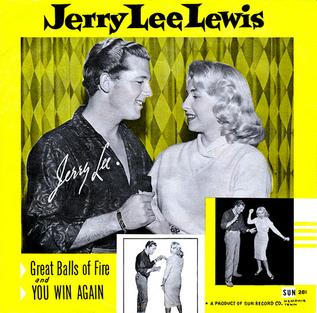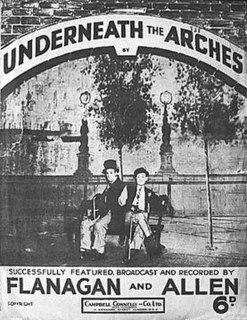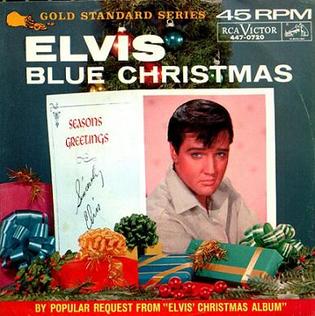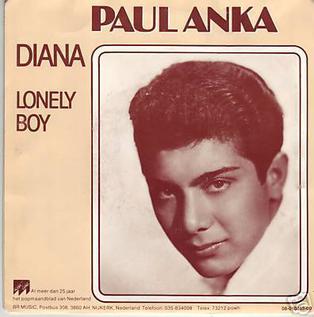Related Research Articles

"Great Balls of Fire" is a 1957 popular song recorded by Jerry Lee Lewis on Sun Records and featured in the 1957 movie Jamboree. It was written by Otis Blackwell and Jack Hammer. The Jerry Lee Lewis 1957 recording was ranked as the 96th greatest song ever by Rolling Stone. The song is in AABA form. The song sold one million copies in its first 10 days of release in the United States and sold over five million copies, making it both one of the best-selling singles in the United States, as well as one of the world's best-selling singles of all time.

"Jailhouse Rock" is a song written by Jerry Leiber and Mike Stoller that first became a hit for Elvis Presley. Presley performed it in the film of the same name and RCA Victor issued the song on a 45 rpm single on September 24, 1957, which reached the top of the charts in the U.S. and the Top 10 in several other countries. The song has been recognized by the Grammy Hall of Fame, the American Film Institute, and others.
"Honeycomb" is a popular song written by Bob Merrill in 1954. The best-selling version was recorded by Jimmie Rodgers and charted at number one on the Billboard Top 100 in 1957. "Honeycomb" also reached number one on the R&B Best Sellers chart and number seven on the Country & Western Best Sellers in Stores chart. It became a gold record. The song is referenced in the McGuire Sisters hit song "Sugartime", in which the soloist sings the line "Just be my honeycomb" and the word "honeycomb" is echoed by the other sisters and the male chorus.

"When I Fall in Love" is a popular song, written by Victor Young (music) and Edward Heyman (lyrics). It was introduced in the film One Minute to Zero. Jeri Southern sang on the first recording released in April 1952 with the song's composer, Victor Young, handling the arranging and conducting duties. The song has become a standard, with many artists recording it; the first hit version was sung by Doris Day released in July 1952.
"A Poor Man's Roses " is a song was written by Bob Hilliard (lyricist) and Milton De Lugg (composer). The song was popularized by both Patsy Cline and Patti Page in 1957. Patti Page recorded the song again in 1981.

"I Can't Stop Loving You" is a popular song written and composed by country singer, songwriter, and musician Don Gibson, who first recorded it on December 30, 1957, for RCA Victor Records. It was released in 1958 as the B-side of "Oh, Lonesome Me", becoming a double-sided country hit single. At the time of Gibson's death in 2003, the song had been recorded by more than 700 artists.

"Underneath the Arches" is a 1932 popular song with words and music by Bud Flanagan, and additional lyrics by Reg Connelly. It was one of the most famous songs of the duo Flanagan and Allen.

"Blue Christmas" is a Christmas song written by Billy Hayes and Jay W. Johnson and most famously performed by Elvis Presley; it was first recorded by Doye O'Dell in 1948. It is a tale of unrequited love during the holidays and is a longstanding staple of Christmas music, especially in the country genre.

"You Send Me" is a song written and originally recorded by American singer Sam Cooke, released as a single in 1957 by Keen Records. Produced by Bumps Blackwell and arranged and conducted by René Hall. The song, Cooke's debut single, was a massive commercial success, becoming a No. 1 hit on both Billboard's Rhythm & Blues Records chart and the Billboard Hot 100.

"Diana" is a song written and made famous by Paul Anka in 1957, recorded in May 1957 at Don Costa studio in New York City. Anka stated in his autobiography that the song was inspired by a girl named Diana Ayoub, whom he had met at his church and community events, and had developed a crush on. Session musicians on the record included Bucky Pizzarelli on Guitar, Irving Wexler on piano, Jerry Bruno on bass, and Panama Francis on drums. The song was recorded in May 1957 at RCA studios. Backup singers included Artie Ripp.

"Let It Be Me" is a popular song originally published in French in 1955 as "Je t'appartiens" interpreted by Gilbert Bécaud. It became popular worldwide with an English version by the Everly Brothers and later with the duet by Betty Everett and Jerry Butler.
"Young Love" is a popular song, written by Ric Cartey and Carole Joyner, and published in 1956. The original version was recorded by Ric Cartey with the Jiva-Tones on November 24, 1956. It was released in 1956 by Stars Records as catalog number 539 and one month later by RCA Records as catalog number 47-6751. Cartey's version never charted.

"Too Much" is a #1 song recorded in a hit version by Elvis Presley and published by Elvis Presley Music in 1956. It was written by Bernard Weinman and Lee Rosenberg. It was first released in 1955 by Bernard Hardison on Republic Records. Presley recorded the song in September 1956 and first performed it on January 6, 1957 on CBS-TV's The Ed Sullivan Show. Released as a single, Presley's "Too Much" reached number one on both the Cashbox and Billboard sales charts and went to number three on the R&B chart. The single peaked at number two on the then-named Top 100 chart, the main Billboard pop chart.

"Wake Up Little Susie" is a popular song written by Felice and Boudleaux Bryant and published in 1957.

"Silhouettes" is a song made famous by the doo-wop group the Rays in 1957. A competing version by the Diamonds was also successful. In 1965 it was a number 5 hit in the US for Herman's Hermits, and in 1990 it was a number 10 hit in the UK for Cliff Richard.
"Ça, C'est L'amour" is a popular song by Cole Porter, published in 1957. It was introduced in the film Les Girls.
"A White Sport Coat" is a 1957 country and western song with words and music both written by Marty Robbins. It was recorded on January 25, 1957, and released on the Columbia Records label, over a month later, on March 4. The arranger and recording session conductor was Ray Conniff, an in-house conductor/arranger at Columbia. Robbins had demanded to have Conniff oversee the recording after his earlier hit, "Singing the Blues", had been quickly eclipsed on the charts by Guy Mitchell's cover version scored and conducted by Conniff in October 1956.
"Long Lonely Nights" is a song that was originally released by Lee Andrews & the Hearts in 1957. Hit versions were also released by Clyde McPhatter, later in 1957, and Bobby Vinton in 1965. The song was written by Lee Andrews, though Larry Brown, Doug Henderson, and Mimi Uniman were given songwriter credit as well, in a practice that was common at the time.
References
- ↑ Whitburn, Joel (2004). The Billboard Book of Top 40 Hits: Eighth Edition. Record Research. p. 236.
| This 1950s song-related article is a stub. You can help Wikipedia by expanding it. |